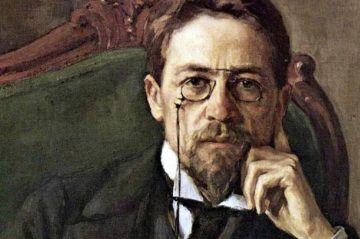Richard Ford in Literary Hub:
 Until I began the long and happy passage of reading all of Anton Chekhov’s short stories for the purpose of selecting the twenty for inclusion in The Essential Tales of Chekhov, I had read very little of Chekhov. It seems a terrible thing for a story writer to admit, and doubly worse for one whose own stories have been so thoroughly influenced by Chekhov through my relations with other writers who had been influenced by him directly: Sherwood Anderson. Isaac Babel. Hemingway. Cheever. Welty. Carver.
Until I began the long and happy passage of reading all of Anton Chekhov’s short stories for the purpose of selecting the twenty for inclusion in The Essential Tales of Chekhov, I had read very little of Chekhov. It seems a terrible thing for a story writer to admit, and doubly worse for one whose own stories have been so thoroughly influenced by Chekhov through my relations with other writers who had been influenced by him directly: Sherwood Anderson. Isaac Babel. Hemingway. Cheever. Welty. Carver.
As is true of many American readers who encountered Chekhov first in college, my experience with his stories was both abrupt and brief, and came too early. When I read him at age twenty, I had no idea of his prestige and importance or why I should be reading him—one of those gaps of ignorance for which a liberal education tries to be a bridge. But typical of my attentiveness then, I remember no one telling me anything more than that Chekhov was great, and that he was Russian.
And for all of their surface plainness, their apparent accessibility and clarity, Chekhov’s stories—especially the greatest ones—still do not seem so easily penetrable by the unexceptional young. Rather, Chekhov seems to me a writer for adults, his work becoming useful and also beautiful by attracting attention to mature feelings, to complicated human responses and small issues of moral choice within large, overarching dilemmas, any part of which, were we to encounter them in our complex, headlong life with others, might evade even sophisticated notice.
More here.
